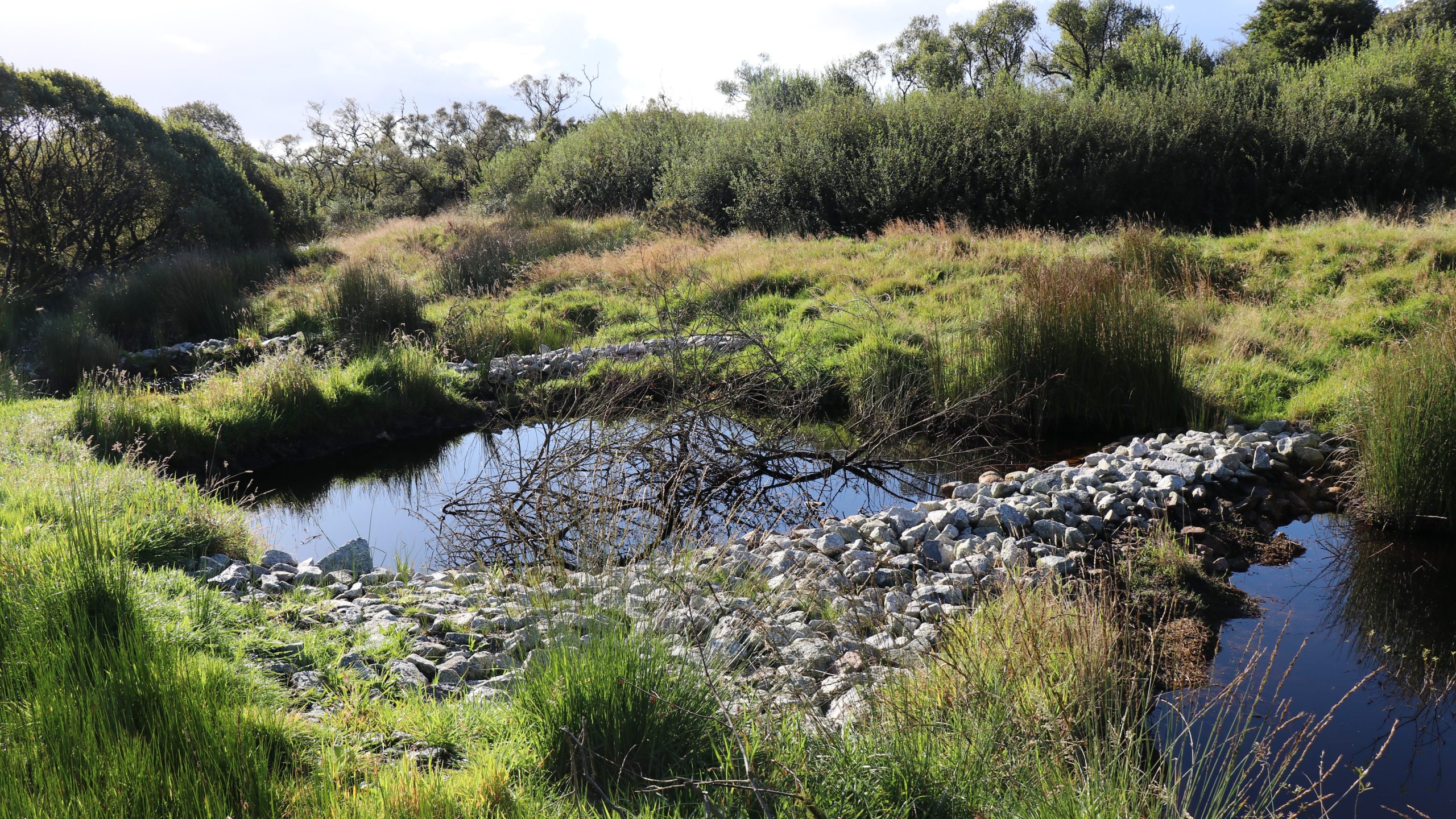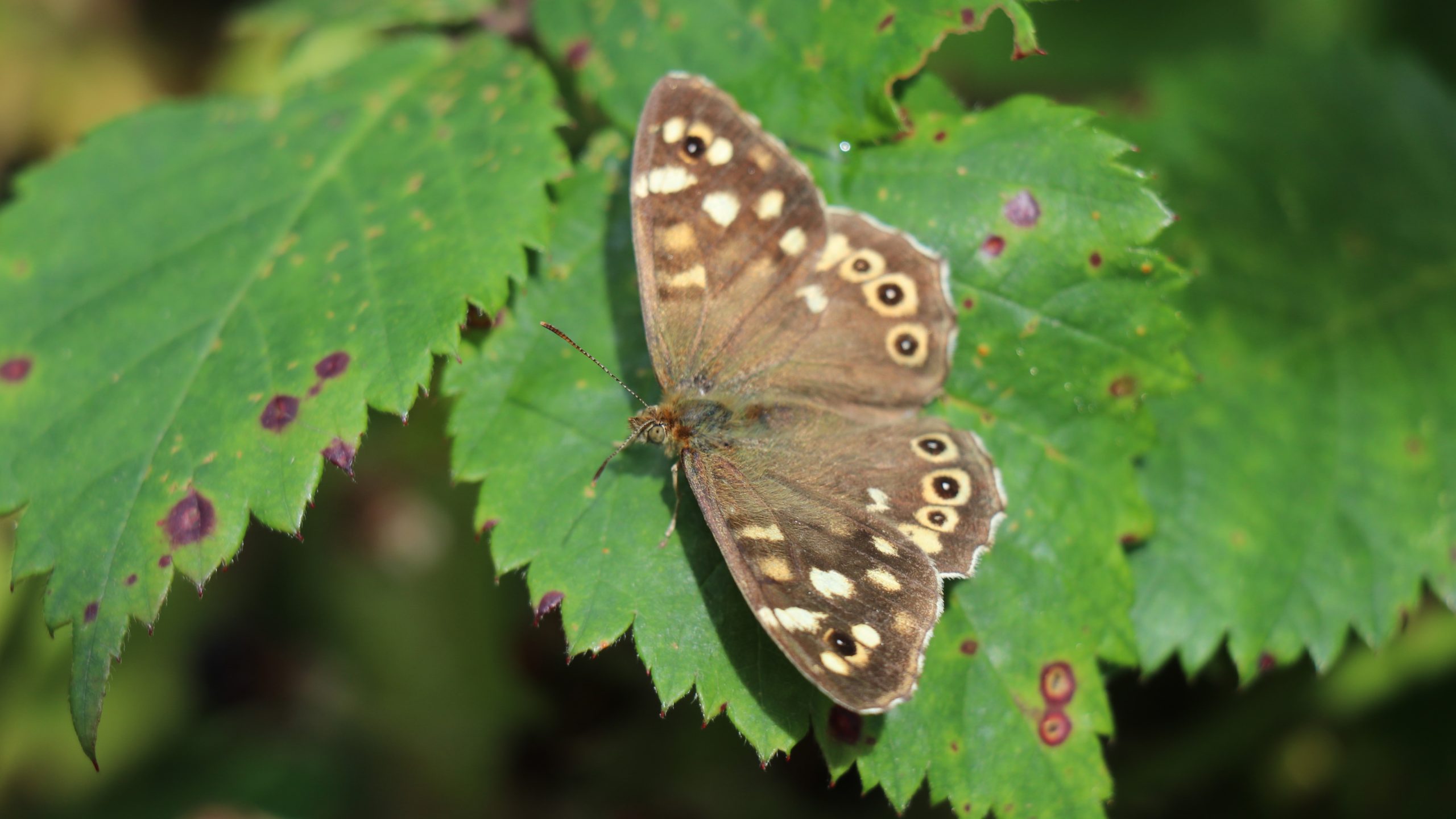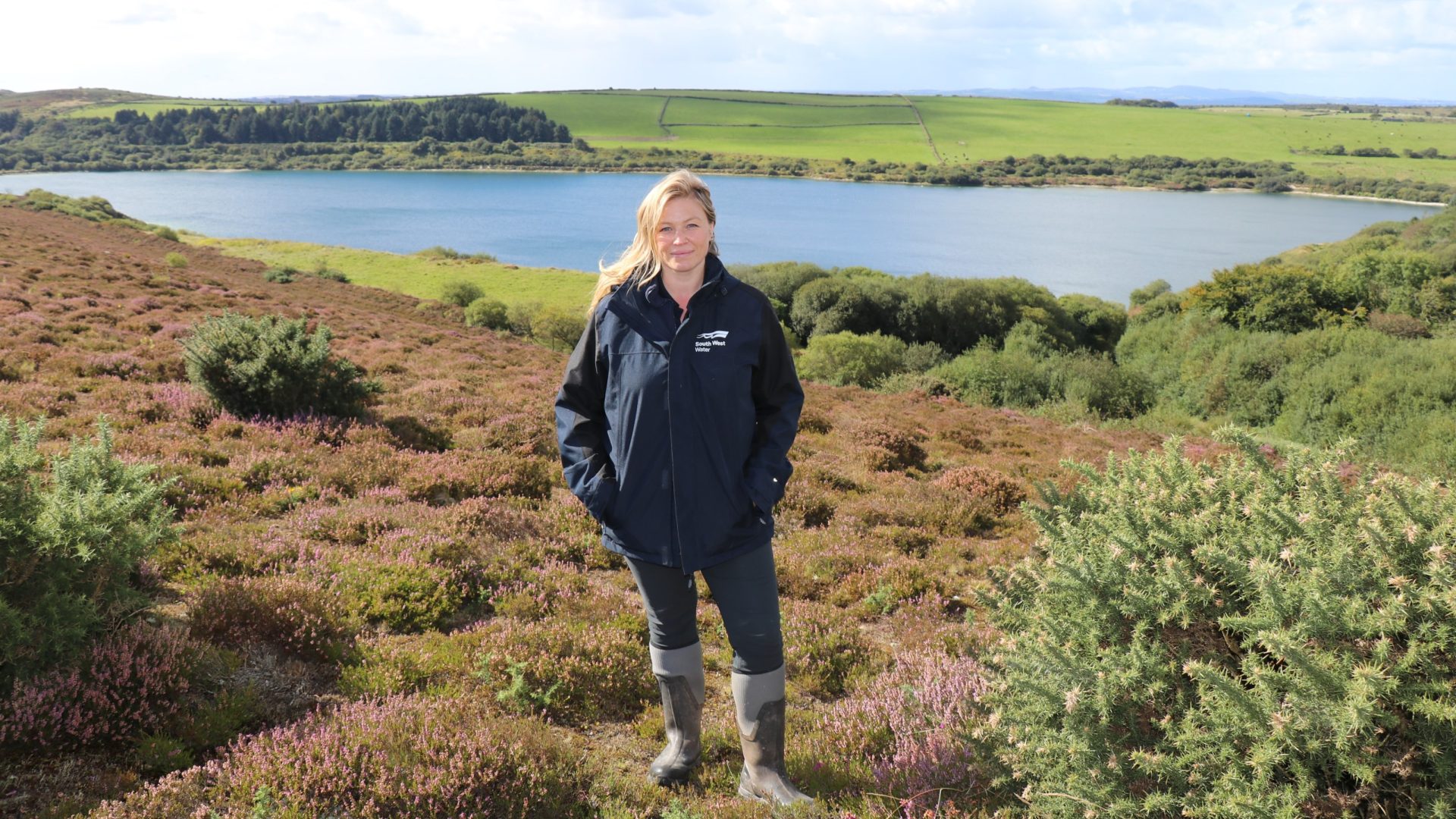An old clay pit on Bodmin Moor in Cornwall has been transformed into a haven for wildlife and diverse plant species thanks to biodiversity works by South West Water.
South West Water took over ownership of Park Pit in 2007 which is now used as a reservoir supplying around 4 million litres of drinking water per day to customers in parts of Cornwall. Since then, the water company has been on a mission to boost biodiversity at the site.
As part of these works, 10 hectares of native broadleaf woodland have recently been planted with the aim of increasing biodiversity on the land. Alongside this, non-native trees have been removed and will be replaced with native broadleaf species which provide many more benefits, including a greater variety of food sources for wildlife and insects, as well as better nesting and shelter opportunities for birds.

Areas of the site have been fenced off from livestock, encouraging grass to grow up and provide shelter for breeding birds, including Curlew – a species of wading bird of international importance which is in decline in the UK. South West Water hopes to encourage Curlew onto the site to support its breeding populations. The heathland which was established in 2010 is being managed through scrub removal and animal grazing to keep it in good condition.
Further improvements have seen almost 19 hectares of peatland at the site restored which will benefit wildlife by creating food sources and nesting habitats for years to come. Additionally, an eel passage has been installed to allow eels to access the newly wetted peatland area.
The results from the work are clear to see. Recent surveys have found an adult Marsh Fritillary butterfly, along with its caterpillar webs, a species threatened in the UK and across Europe and the first in years to be spotted on the site. There have been reports of other insects on the land, including the elusive Tormentil Mining Bee, a priority species which is in decline and has become scarce across the UK. The site is also host to the largest collection of Marsh Clubmoss in the South West, a rare species of moss.

A large part of the site is now recognised as a County Wildlife Site – a special designation for areas of land that are rich in wildlife – and contains a number of regionally and nationally important habitats and species.
Hannah Bailey, Biodiversity Action Officer at South West Water, said:
“As the proud owner and manager of over 6,000 hectares of land, at South West Water we recognise the vital importance of creating and maintaining spaces where nature and wildlife can thrive. We’ve carried out some fantastic work at Park Pit over the last 12 years and it has become a landmark site showcasing what can be achieved through careful restoration and land management.”



